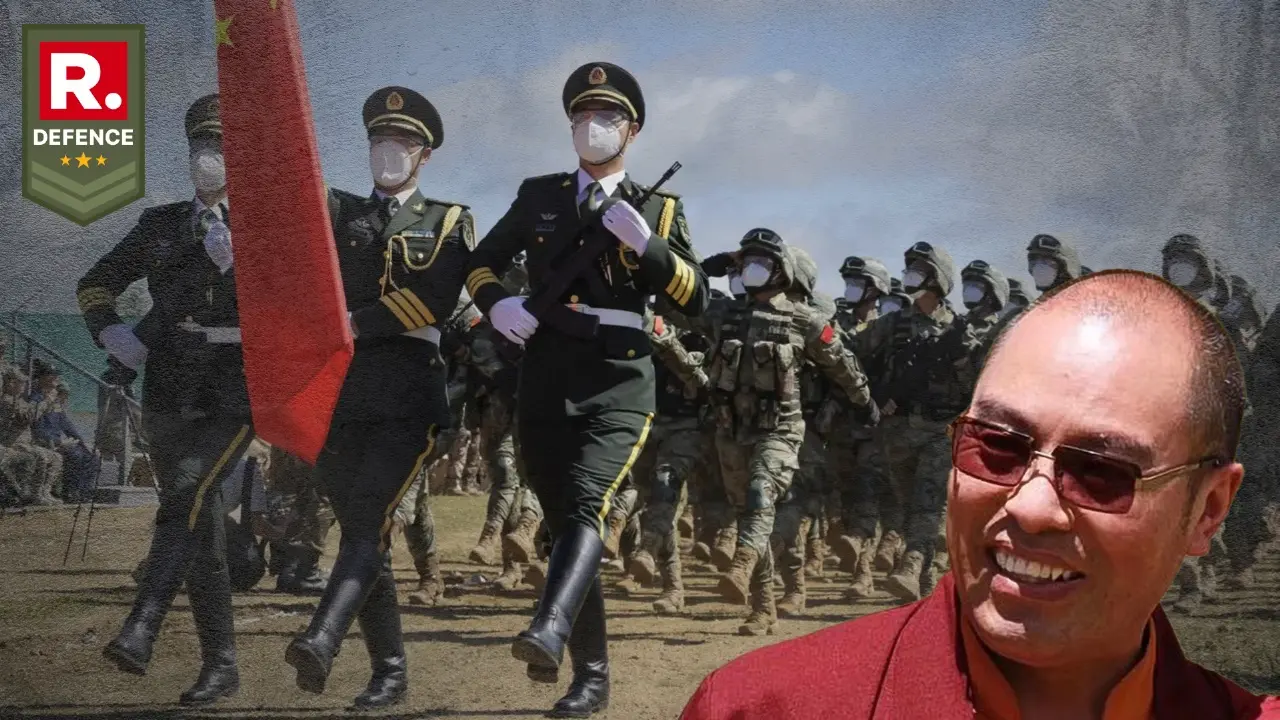Updated 23 April 2025 at 16:45 IST
Mystery Surrounds Death of Tibetan Abbot Tulku Hungkar Dorje in Joint China-Vietnam Military Raid
The death of Tulku Hungkar Dorje, a prominent Tibetan abbot, has ignited global condemnation following reports that he died under suspicious circumstances.
- Defence News
- 3 min read

Beijing, China - The sudden and secretive death of Tulku Hungkar Dorje, a revered 56-year-old Tibetan abbot, has ignited global outrage across Tibetan communities and human rights circles. Dorje, who headed the Lung Ngon Monastery in Golog, Qinghai, reportedly died under unclear circumstances on March 28, 2025, following his arrest in a covert joint operation between Chinese and Vietnamese authorities.
Chinese officials announced his death only on April 2, claiming illness as the cause—yet provided no documentation or medical explanation. Tibetan rights groups immediately questioned the timing, secrecy, and lack of transparency, alleging political foul play and accusing both governments of attempting to erase evidence of abuse or custodial death.
Secret Cremation Order Prompts Protests
According to Tibet Watch and FreeTibet.org, Chinese authorities issued a death certificate to Lung Ngon Monastery but warned monks not to reproduce or disclose it. Reports further allege that Vietnam cooperated with China to deny the body’s return to Dorje’s family, instead planning a secret cremation without autopsy or religious rites. This has triggered widespread protests from five Tibetan NGOs, including the Tibetan Youth Congress and Students for a Free Tibet.
On April 18, the NGOs staged coordinated protests in Dharamsala, demanding an independent forensic inquiry and the immediate preservation of Dorje’s remains. They accused both China and Vietnam of suppressing crucial evidence and violating international human rights norms. Dorje's followers argue that cremation without a neutral investigation would obstruct any attempt to uncover the truth behind his death.
Advertisement
The Spiritual Leader’s Resistance Made Him A CCP Target Long Before His 2024 Arrest
Born in Gade County, Amdo, in 1969, Tulku Hungkar Dorje dedicated his life to preserving Tibetan culture, language, and spiritual autonomy. A respected teacher, philanthropist, and abbot since 2002, he founded several schools and vocational centres aimed at educating nomadic and rural Tibetan children. He actively resisted Chinese assimilation policies and refused to endorse Beijing’s appointed Panchen Lama, whom many Tibetans consider illegitimate.

His educational initiatives and refusal to comply with Chinese religious narratives earned him increasing scrutiny. In August 2024, Dorje came under fire for not welcoming the Panchen Lama during an official visit, leading to intense interrogation. He was arrested shortly after and disappeared, with Tibetan exile media reporting his absence in December 2024. Chinese authorities remained silent, neither confirming detention nor issuing updates.
Advertisement
Dorje's Case Highlights The Growing Chinese Reach
Dorje was reportedly arrested in March 2025 as part of a Vietnam-China joint operation. Sources say he had fled to Vietnam to escape persecution, but Chinese agents—allegedly in coordination with Vietnamese police—detained him and transferred him back across the border. On March 28, within hours of being moved to a local security office, he was declared dead under opaque circumstances.

The involvement of Vietnam has raised serious concerns among international rights groups about growing foreign complicity in China's crackdown on dissent. The Tibetan government-in-exile has denounced the lack of due process and accused Beijing of extending its repressive reach across national borders.
Tibetan Religious Institutions Face Tighter Control As China Intensifies Its Internal Crackdown
Back in Tibet, Dorje’s death has triggered a spike in repression. Security has been ramped up around Lung Ngon Monastery, with reports of increased surveillance, intimidation of monks, and detentions of civilians linked to Dorje’s educational initiatives. Observers say these moves reflect a broader CCP strategy to dismantle autonomous Tibetan religious structures and replace them with state-controlled institutions.
Monks are now reportedly barred from holding prayer ceremonies in his memory, and traditional Tibetan mourning rituals have been banned, further fuelling resentment and deepening the sense of cultural occupation.
Watch- China Warns US Over Port Fees: 'Stop Wrongful Practices' Amid Escalating Trade War
Published By : Yuvraj Tyagi
Published On: 23 April 2025 at 16:45 IST
